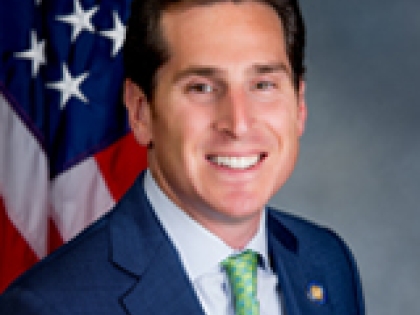
Bill aims to increase Sani transparency
On June 3, the New York State Senate passed bill S.1102A that would require candidates for commissioners of sanitation districts to file statements of campaign expenditure and contributions, as there are now no reporting requirements for these elections.
If made into law, the bill, sponsored by Sen. Todd Kaminsky, a Democrat of Long Beach, would change election protocols for special sanitation elections statewide, including for Sanitation District No. 2, which covers Baldwin, Roosevelt, South Hempstead and parts of Uniondale, Rockville Centre and Freeport, serving roughly 55,000 residents.
The measure has yet to be voted on by the State Assembly, a requirement before it can move to Governor Cuomo for his signature.
Campaign finance laws do not apply to special sanitation districts, even though commissioners and trustees oversee large budgets. Sanitation District No. 2’s 2021 spending plan was nearly $12.2 million, with a tax levy of a little more than $10 million, to provide services such as garbage collection, recycling, and medical and hazardous waste disposal.
Sanitation District No. 2 commissioners earn $7,500 a year, with medical and dental benefits, and are responsible for drafting and implementing local ordinances and rules and regulations for waste and litter management, but they also manage all administrative, financial and operational duties of a workforce of 60 full-time employees, including preparing the annual budget and setting the tax rate.
Baldwin Sanitation Commissioner John Cools supported the bill, saying, "Any legislation that promotes transparency in local government can only be beneficial to its residents.” He also said it might help increase voter turnout, which has been an issue in his district.
The bill highlights the need for campaign finance transparency, especially in elections with low voter turnout, officials said.
Current Sanitation District No. 2 commissioners Brian O’Connor, John Cools and LeRoy Roberts won their elections unopposed, with 120, 148 and 159 votes in 2016, 2017 and 2019, respectively. This year, Roberts’s term expires, and he is running for the fifth time since he was elected in 2001.
Cools said he does not believe the bill would particularly affect Sanitation District No. 2. “Nobody is out soliciting funds for running for sanitation commissioner,” he said. “It’s grassroots—you’re doing a hometown campaign.
“In all the years I’ve been running, nobody has ever made a contribution,” Roberts added.
In September 2005, the Nassau County comptroller’s office finalized an audit into Sanitation District No. 2 for 2003 and 2004, finding that the board of commissioners did not “provide sufficient oversight over the operations of the district” and engaged in “intentional use of public funds for inappropriate expenses,” citing lack of competitive bidding, no conflict of interest policies and employee favoritism, among other issues.
Sanitation District No. 2 board of commissioners members said they disagreed with most of the audit’s findings, noting there was no “fraudulent, intentional or malicious misappropriation” of funds. They acknowledged, however, that improvements could be made, especially in the segregation of duties.
“We always abide by the rule of law—we try to be very transparent,” Roberts said.
Spurred by Nassau’s audit, State Comptroller Thomas DiNapoli published a research paper on special districts in the state in 2007, in which he highlighted how the only “structural checks” against lack of transparency and internal controls in Nassau’s special districts are the elections, which often suffer from low participation.
In 2012, a group called Residents for Efficient Special Districts collected more than 5,000 signatures and launched a referendum to dissolve Sanitation District No. 2, which failed. In a 2013 interview, the group’s executive director, Laura Mallay, blamed the loss on local elected leaders, whom she said use special districts to provide jobs for supporters. “No one votes,” she said. “They are able to fly under the radar.”
“Sunlight is the greatest disinfectant, and transparency is integral to preventing corruption,” Kaminsky said. As an example, he spoke about Oceanside Sanitation District No. 7, which in 2018 suffered from low voter turnout and a series of accusations of sexual harassment, retaliation, racism, homophobia and anti-Semitism.
Sanitation District No. 7 was also deemed a “lightning rod controversy” by Nassau County Comptroller Jack Schnirman, who began an audit of the district in December 2020 and is optimistic that it will be finalized by the end of this year. The audit is examining administrative practices, fund balance, cash receipts and disbursements, and the cost of operations, as well as possible nepotism, ethics and transparency issues, and conflicts of interest.
Austin Graff, chairman of the board for District No. 7, who spoke to both Kaminsky and Schnirman about introducing more transparency to address possible corruption in his district, said of the bill: “I think this is an excellent safeguard. By forcing commissioners to disclose who they got money from, it allows the public to know where the influence is coming from.”